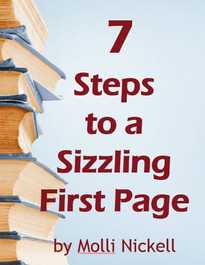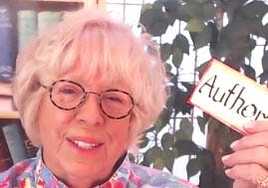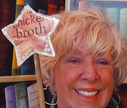 When an agent reads your query and synopsis, this proves you're on the right track . . . so far. You've captured their interest. Next, they want to know if you truly are the skilled story teller you appear to be. How can you ensure they scroll down the screen and read every bit of your submitted manuscript? Begin your story with 350 captivating words. Even though you've created a slam-dunk query and compelling synopsis, your first words must provide sufficient impact to keep the momentum going. Or stop it dead in its tracks and send your submission off to delete-ville. Publishing is a business. Agents are business people. They're not looking for a manuscript to read. They're looking for a manuscript they can sell to a publisher who will transform it into a book that generates cash flow for everyone down the line: retailer, publisher, agent, and you, the writer. Once you sign a publishing contract, and your book goes into production, it becomes the focus of a gang of editors, book designers, advertising specialists, etc. They'll revise and amp up your first 250 words to create a captivating first page to engage the reader and motivate a page turn. Then what? Kaching! Kaching! Book store sale$. This is why it's vital to engage agent interest (and motivate them to keep reading) by including one or more of the following in your manuscript first 350 words:
0 Comments
As the publishing biz adopts digital technology, many smaller, traditional publishers have merged with conglomerates who already have editing departments. The influx of books waiting for editing increases the need for additional in-house editors. However, in a cost-cutting move to hold down production costs, publishers now rely on agents to submit manuscripts that are saleable and well-edited as well. This is why it’s so important for you to revise words and phrases that will cause agents to label your manuscript as being "unworthy" of publication and send it to delete-ville. Yikes! You don't want that to happen.  (So, what are these killer words? They’re identified, along with a search-mark-revise technique, in my “red-flag” mini-tutorial available at MolliMart.) The increased dependence on agents has increased the agent population. And, as you might expect, this attracts increasing hordes of agent scammers, eager to prey on writers who want, more than anything, to become published authors.
If you’re on the agent quest, run away, fast as you can, from any agent who:
Due diligence is the rule of the day. Legitimate, newer agents, eager to build their list of writer clients, can be treasures for unpublished writers. Particularly if the agents have industry-relevant track records, and are associated with reputable agencies. Bottom line? Educate yourself. Research agent/agency track records at:
|
If you’d like to re-post any of my blogs, help yourself. Please reference the source as: Molli Nickell. THE Publishing Wizard at www.getpublishednow.biz Archives
July 2016
Categories |


 RSS Feed
RSS Feed
